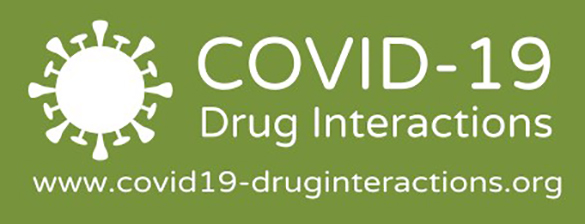
The University of Liverpool has launched a fully searchable, dynamic version of its COVID-19 Drug Interactions website (www.covid19-druginteractions.org), to aid the safe prescribing of experimental drugs being trialled against COVID-19.
Created by the University’s Liverpool Drug Interactions Group with input from colleagues at University Hospital Basel and Radboud University, Nijmegen, the website provides vital information on whether the combination of an experimental drug and co-medications are safe to prescribe. This is of particular importance when treating elderly patients and those with underlying health problems, who are most at risk from COVID-19 and are likely to be receiving multiple other drugs.
Over 170,000 users
Introducing one of the trialled drugs to a patient could raise the concentration of a co-medication to dangerous levels, or, alternatively, lower it to the point where it is no longer effective. The updated website also allows a printout of the recommendations to be added to patient records.
To date, the static website, with downloadable interaction charts, has had over 170,000 users from 200 countries and has been recommended in national and international treatment guidelines, including the British HIV Association (BHIVA), European AIDS Clinical Society (EACS), Infectious Diseases Society of America (IDSA), and American Association for the Study of Liver Diseases (AASLD).
Complex patient groups
In acknowledging the tremendous efforts of many colleagues to develop this fully functional resource Professor Saye Khoo, who heads the team, said: “We will continue to respond as the COVID-19 situation develops, with plans already in place to expand the list of experimental agents and co-medications included in the checker In addition we will develop specific resources for complex patient groups.”
Emeritus Professor David Back, who originally developed resources for other viral diseases (HIV and HCV), said: “Having a template from HIV and HCV has meant that we were able to respond rapidly to the COVID-19 pandemic. We are grateful for support from the Centre of Excellence in Infectious Diseases Research (CEIDR) and colleagues at AbbVie, Gilead, Novartis, BHIVA and EACS.”

More information can be found here www.covid19-druginteractions.org